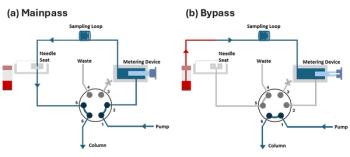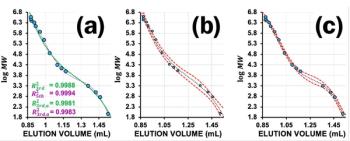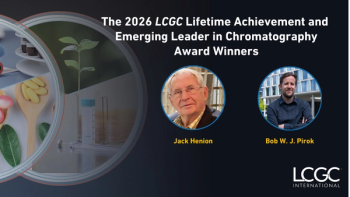
Peter Nemes Receives the Georges Guiochon Faculty Fellowship at HPLC 2018
Peter Nemes of the University of Maryland, College Park (Maryland), was awarded the Georges Guiochon Faculty Fellowship at HPLC 2018 during the opening plenary session on Sunday, July 29, in Washington, D.C.
Peter Nemes of the University of Maryland, College Park (Maryland), was awarded the Georges Guiochon Faculty Fellowship at HPLC 2018 during the opening plenary session on Sunday, July 29, in Washington, D.C.
Nemes develops microanalytical separation technologies to extend high-resolution mass spectrometry (HRMS) from a cell-population averaging tool to one capable of measuring single cells in the context of normal and impaired development. At the university, Nemes adopts cell biological tools to identify and microsample individual embryonic cells and neurons, designs microanalytical workflows to extract metabolites, peptides, and proteins from these cells, advances microscale separation to distinguish molecules, and uses HRMS for identification and quantification.
The Georges Guiochon Faculty Fellowship honors the memory of Georges Guiochon and recognizes his major contributions to high performance liquid chromatography (HPLC), including his interest in fostering the careers of young people in separation science. Guiochon was a master of the theory in nearly all fields related to chromatography. He presented many rigorous treatments on retention and,especially, efficiency in liquid chromatography, and he provided the theoretical foundation for the large-scale application of preparative chromatography, which is now one of the key technologies of the emerging biopharmaceutical industry. Guiochon recently guided the re-emergence of supercritical fluid chromatography in the fundamentally correct directions.
Newsletter
Join the global community of analytical scientists who trust LCGC for insights on the latest techniques, trends, and expert solutions in chromatography.




